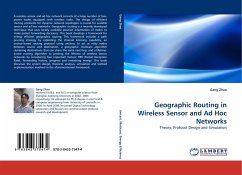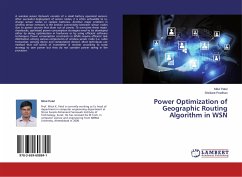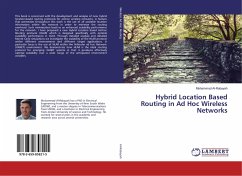A wireless sensor and ad hoc network consists of a large number of low-power nodes equipped with wireless radio. The design of efficient routing protocols for dynamic network topologies is crucial for scalable sensor and ad hoc networks. Geographic routing is a recently developed technique that uses locally available position information of nodes to make packet forwarding decisions. This book develops a framework for energy efficient geographic routing. This framework includes a path pruning strategy by exploiting the channel listening capability, an anchor-based routing protocol using anchors to act as relay nodes between source and destination, a geographic multicast algorithm clustering destinations that can share the same next hop, and a lifetime-aware routing algorithm to prolong the lifetime of wireless sensor networks by considering four important factors: PRR (Packet Reception Rate), forwarding history, progress and remaining energy. This book discusses the system design,theoretic analysis, simulation and testbed implementation involved in the aforementioned framework.
Bitte wählen Sie Ihr Anliegen aus.
Rechnungen
Retourenschein anfordern
Bestellstatus
Storno








